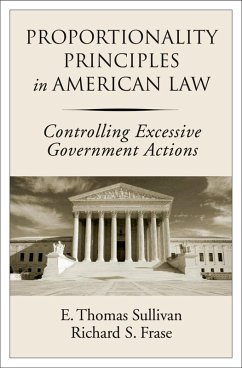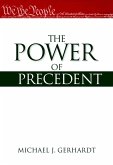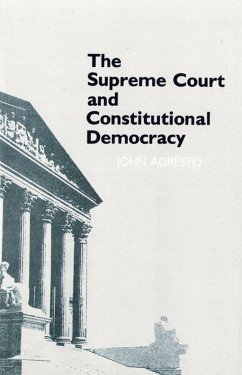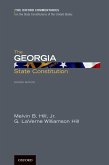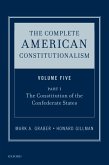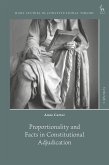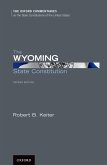From the ancient origins of Just War doctrine to utilitarian and retributive theories of punishment, concepts of proportionality have long been an instrumental part of the rule of law and an essential check on government power. These concepts all embody the fundamental value that government and private actions should not be demonstrably excessive relative to their moral and practical justifications. In the American legal system, despite frequent though unacknowledged use of proportionality principles, there is no general theory of what permits courts to invalidate intrusive measures. In Proportionality Principles in American Law, two renowned legal scholars seek to advance such a theory. They argue that standards of review should be more clearly and precisely defined, and that in most circumstances every intrusive government measure which limits or threatens individual rights should undergo some degree of proportionality review. Across a wide range of legal contexts, E. Thomas Sullivan and Richard S. Frase identify three basic ways that government measures and private remedies have been found to be disproportionate: relative to fault; relative to alternative means of achieving the same practical purposes; and relative to the likely practical benefits of the measure or remedy. Using this structure, the book examines the origins and contemporary uses of proportionality principles in public law, civil liberties, and the criminal justice system, emphasizing the utility of proportionality principles to guide judicial review of excessive government measures. By constructing a new framework and a general theory for constitutional judicial review, Proportionality Principles in American Law will help courts more consistently and effectively apply proportionality principles to better serve their vital roles as guardians of individual rights and liberties.
Dieser Download kann aus rechtlichen Gründen nur mit Rechnungsadresse in A, B, BG, CY, CZ, D, DK, EW, E, FIN, F, GR, HR, H, IRL, I, LT, L, LR, M, NL, PL, P, R, S, SLO, SK ausgeliefert werden.

